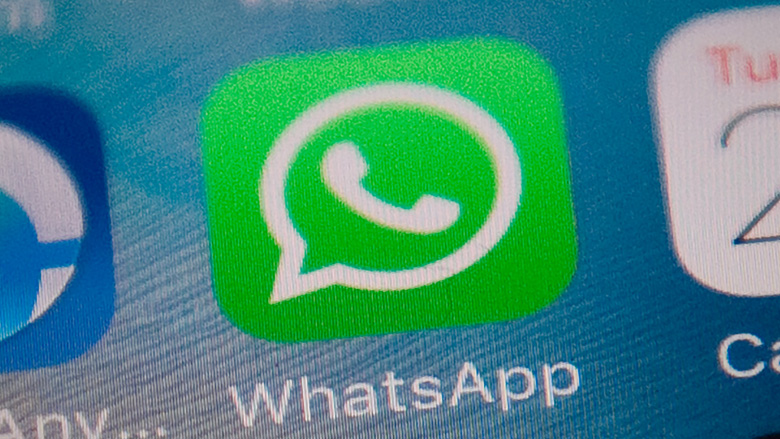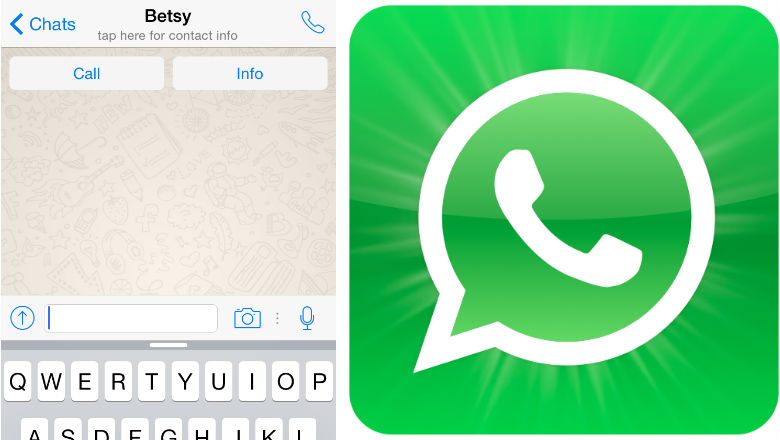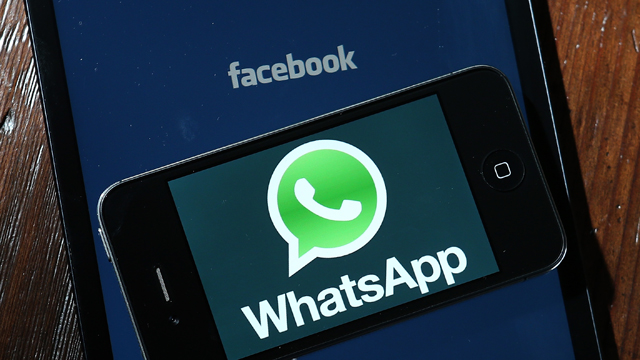
Getty
WhatsApp Gold is a virus being sent to users of the web messaging application talking about a premium service being offered. The text message also says that a video named Martinelli is being sent to users on January 4. That video contains a virus.
Previous incarnations of the virus directed users to a supposed limited premium version of the free app. If users clicked on the link, it led them to a website that was loaded with viruses and malware.
There is only one free version of WhatsApp, the one you are using.
Here’s what you need to know:
1. WhatsApp Gold First Appeared in 2016
Users first began reporting about being sent WhatsApp Gold-style messages in 2016. According to Snopes, the original version enticed users saying, “Hey Finally Secret WhatsApp golden version has been leaked, This version is used only by big celebrities. Now we can use it too.”
2. WhatsApp Has Addressed the Hoax on Their Official Website

WhatsApp has addressed the hoax, which is also known as WhatsApp Plus, in their FAQ section on their official website, “WhatsApp Plus is an application that was not developed by WhatsApp, nor is it … Please be aware that WhatsApp Plus contains source code which WhatsApp cannot … Please uninstall your application and install an authorized version of … Plus have no relationship to WhatsApp, and we do not support WhatsApp Plus.”
3. The Martinelli Virus Video Isn’t Real Either
The WhatsApp Gold text warns of a video named Martinelli that will appear and give your phone a virus. There is no evidence to suggest that video is real. The Martinelli warning says that the virus can hack your phone within 10 seconds. That hoax can be traced back to 2017 and first appeared in Spanish. Police in Spain were among the first to confirm that the text was nothing more than a hoax.
4. Security Firms Are Encouraging People to Not Send on the Warning

Internet security firm Sophos has advised WhatsApp users to not send on the warning. Sophos said that forwarding the hoax just furthers confusion. The firm says that by using your phones security updates and only downloading apps from the App Store or Google Play, then users are safe from malware and viruses.
5. WhatsApp Has Been Beset With Various Virus Hoaxes Over the Years
Since becoming a mainstream messaging app, WhatsApp has been beset with virus hoaxes. In 2018, one appeared saying that a link would offer free flights on Aer Lingus. The airline said that hoax was “100 percent fake.” Another was designed to fool people into thinking their phone number was about to be changed. Users were asked to call a premium number to avert the change. Arguably the most concerning hoax was named Olivia. According to Tech Advisor, a spam account sent messages to children pretending to be a friend named Olivia. Eventually, the Olivia account would begin posting pornographic links and content.
READ NEXT: Michigan School Teachers Admit to Being Porn Stars on the Side


